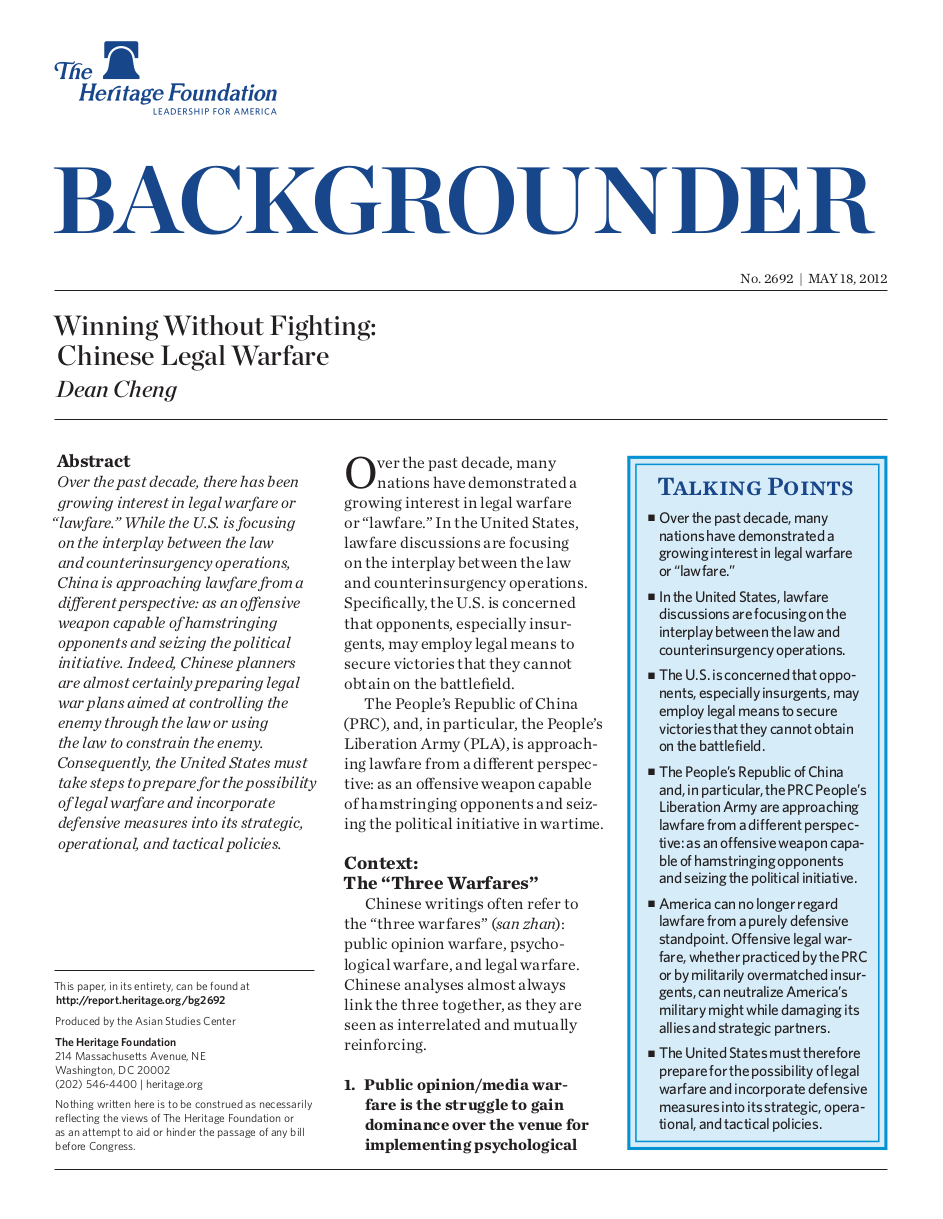Winning Without Fighting: Chinese Legal Warfare
The Heritage Foundation
Over the past decade, many nations have demonstrated a growing interest in legal warfare or “lawfare.” In the United States, lawfare discussions are focusing on the interplay between the law and counterinsurgency operations. Specifically, the U.S. is concerned that opponents, especially insurgents, may employ legal means to secure victories that they cannot obtain on the battlefield.
The People’s Republic of China (PRC), and, in particular, the People’s Liberation Army (PLA), is approaching lawfare from a different perspective: as an offensive weapon capable of hamstringing opponents and seizing the political initiative in wartime.
Related Posts

document
Letter from Keith Krach to Business Leaders on Xinjiang Supply Chain Business Advisory
It is critical that U.S. companies and individuals be aware of the large-scale human rights abuses perpetrated by the PRC government in Xinjiang. Businesses should evaluate their exposure to the risks that result from partnering with, investing in, and otherwise providing support to companies that operate in or are linked to Xinjiang.

video
Can China Form its Own Alliance? — Simone Gao with Keith Krach
G7 adopted the U.S.-led proposal BuildBackBetter World as an alternative to China’s Belt and Road Initiative. But can it compete with China’s investment? KeithKrach was the under secretary of state responsible for economic diplomacy during the #Trump administration. The Blue Dot network his team drafted was adopted by the Biden Administration and is now the Build Back Better World initiative. This Silicon Valley veteran has a good track record of defeating China’s economic aggression, particularly Huawei’s ambition to take over the global 5G communications.
